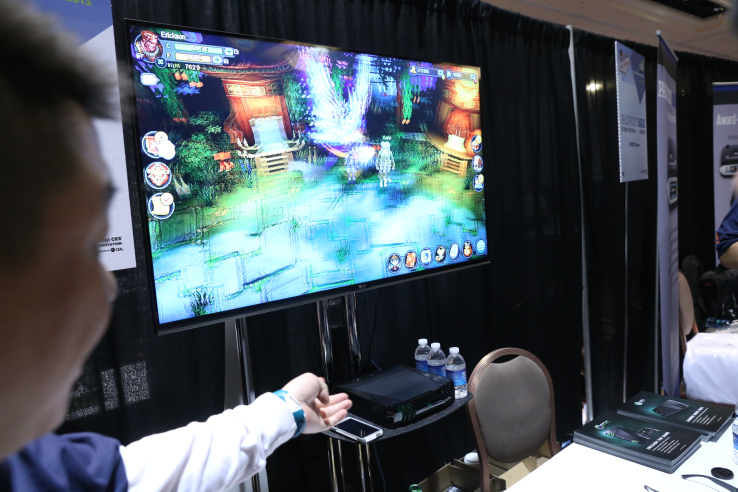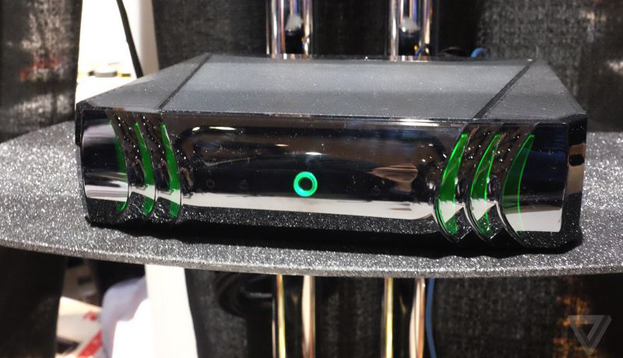We’ve all been made aware of mobile’s gaming takeover these past few years. Younger consumers are flocking to Android and iOS devices as core-friendly gaming experiences move into handheld’s domain.
If one startup has its way, however, console gaming just might find an unlikely friend in Android.
China-based Snail is preparing for the release of their OBox, an Nvidia K1-powered “modular computer” essentially designed to run Android games on home television sets. The device, targeted towards lower-income gamers in China and the United States, is unique in its ability to render existing games into 3D without any porting work required from the original developer. Though Snail is mum on the exact schematics of this functionality, a TechCrunch writer testing it out at CES described it as “a bit choppy, but more than functional.”
 Snail’s OBox, demonstrated at CES. (photo credit: TechCrunch)
Snail’s OBox, demonstrated at CES. (photo credit: TechCrunch)
Snail plans on differentiating themselves from traditional console manufacturers by offering their OBox in multiple hardware configurations, allowing for levels of customization unprecedented in the field. Snail isn’t revealing exact prices for different setups, but it could be expected that some will cost more than others.
Snail, themselves a game developer with a wide reach in their native China and abroad, plans to reach into their extensive library of Android games to provide the OBox with first-party support. The OBox’s library is obviously contingent on whether or not Android remains a go-to platform for mobile gaming, though the numbers so far are highly encouraging.
Snail’s bid to bring console and mobile gaming together, regardless of how well it succeeds, is an ambitious move. Consumers enjoy their Android games on the small screen; it remains to be seen whether they’ll feel the same way when those same games appear on a television, though Snail thinks they will.

